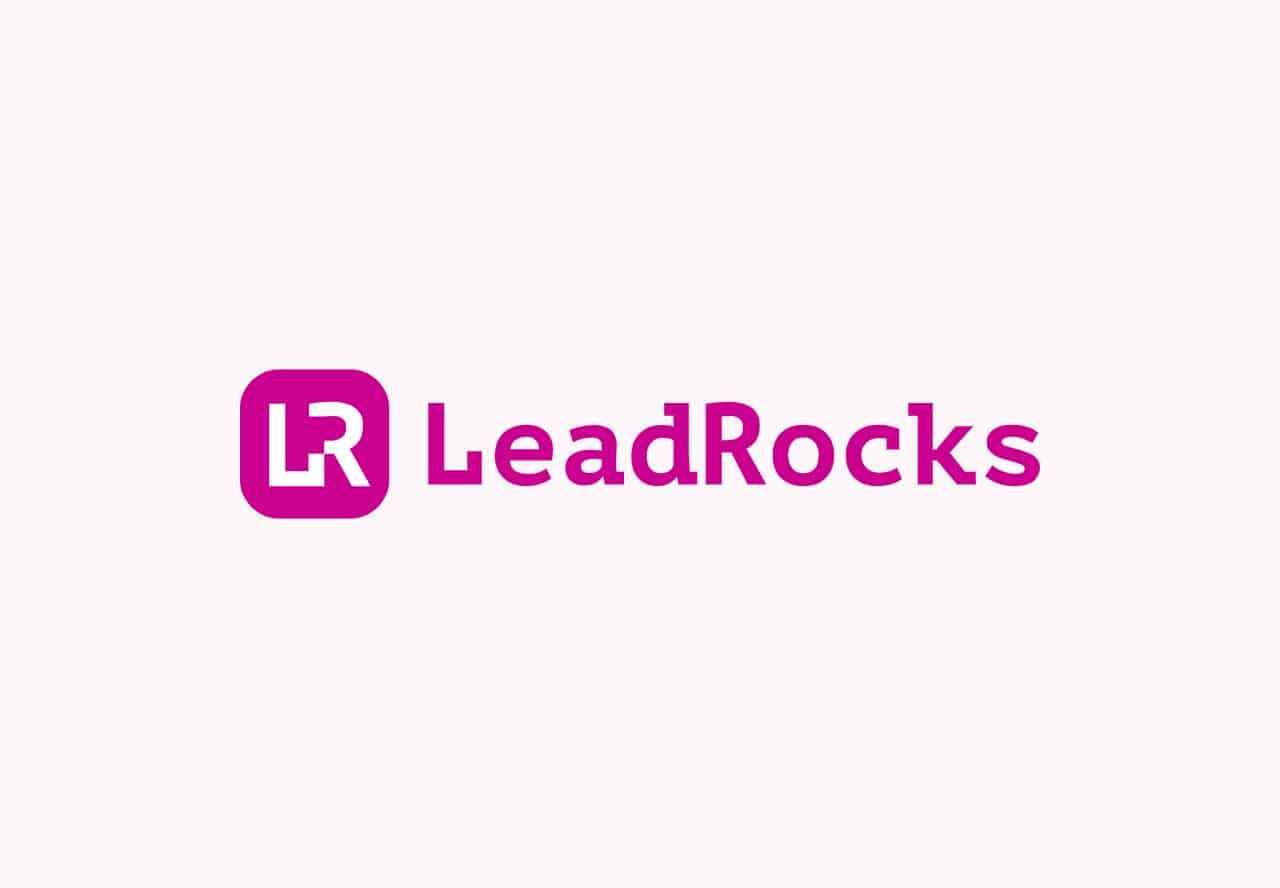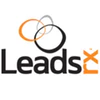Description

ProsperWorks CRM

LeadRocks

LeadsRx
Comprehensive Overview: ProsperWorks CRM vs LeadRocks vs LeadsRx
ProsperWorks CRM (now Copper)
a) Primary Functions and Target Markets:
- Primary Functions: ProsperWorks, now known as Copper, integrates deeply with Google Workspace to provide a seamless CRM experience. It automates data entry, manages leads, tracks deals and helps in organizing contacts. It’s optimized for relationship building, offering features like real-time notifications, email tracking, and pipeline management.
- Target Markets: Copper primarily targets small to mid-sized businesses, especially those heavily reliant on Google Workspace. Industries such as technology, real estate, consulting, and marketing make significant use of Copper due to its ease of integration with Google tools.
b) Market Share and User Base:
- Copper holds a modest market share, driven by organizations that use Google Workspace. Its user base consists largely of small and medium enterprises (SMEs), totaling in the thousands rather than the millions, as is the case with some other major CRMs like Salesforce.
c) Key Differentiating Factors:
- The unique selling point of Copper is its deep integration with Google Workspace, reduced learning curve due to simplified design, and a specific focus on relationship-driven sales processes. It’s known for its ability to automate mundane tasks, allowing users to focus on customer and relationship management.
LeadRocks
a) Primary Functions and Target Markets:
- Primary Functions: LeadRocks is primarily a lead generation tool. It provides access to a vast database of B2B contacts with verified email addresses and LinkedIn profiles. Users can search for potential leads using filters and export them for outreach purposes.
- Target Markets: Its main users are sales and marketing professionals, recruiters, and business development personnel in B2B environments who require a reliable source for leads and contact information.
b) Market Share and User Base:
- LeadRocks has a niche market share with a focus on lead generation services. It has a significant user base among start-ups, SMEs, and agencies looking for efficient ways to acquire leads, although it’s smaller than the more comprehensive CRM systems.
c) Key Differentiating Factors:
- LeadRocks differentiates itself by offering a large B2B database and fine-tuned searching capabilities. It is a tool specific to lead acquisition rather than comprehensive customer relationship management, making it different from a conventional CRM solution.
LeadsRx
a) Primary Functions and Target Markets:
- Primary Functions: LeadsRx is an attribution platform that offers multi-touch attribution and marketing analytics. It focuses on providing insights into the customer journey and how different marketing channels contribute to conversions.
- Target Markets: It targets marketing teams across various industries that need to analyze the effectiveness of their campaigns and make data-driven decisions.
b) Market Share and User Base:
- As a specialized tool, LeadsRx captures a niche market share within the attribution and analytics domain. Its user base includes digital marketing agencies, e-commerce platforms, and companies with robust digital marketing ecosystems.
c) Key Differentiating Factors:
- LeadsRx stands out with its focus on marketing attribution and analytics. The ability to offer visibility across channels and touchpoints for conversion attribution is its primary differentiation, providing marketers with clearer insights into the spend effectiveness across different channels.
Comparative Summary:
- ProsperWorks CRM (Copper): Best for companies seeking a CRM that integrates tightly with Google Workspace, focusing on relationship management and pipeline tracking.
- LeadRocks: Tailored for businesses needing an effective tool for B2B lead generation and contact acquisition, not a full-suite CRM.
- LeadsRx: Ideal for organizations needing detailed marketing attribution analytics to fine-tune their marketing strategies and understand channel performance better.
While Copper serves as a well-integrated CRM solution for Google Workspace users, LeadRocks caters to those focused on lead generation without deep CRM features, and LeadsRx is centered on providing advanced attribution analytics for marketing optimization. Each solution has carved a niche based on its core functions and target market, while their market share reflects their specialization and adoption by different industry segments.
Contact Info

Year founded :
Not Available
Not Available
Not Available
Not Available
Not Available

Year founded :
Not Available
Not Available
Not Available
Not Available
Not Available

Year founded :
2015
+1 844-629-7627
Not Available
United States
http://www.linkedin.com/company/leadsrx
Feature Similarity Breakdown: ProsperWorks CRM, LeadRocks, LeadsRx
When comparing ProsperWorks CRM (now known as Copper), LeadRocks, and LeadsRx, it’s important to note that they all cater to different needs and industries within customer relationship management, lead generation, and marketing analytics. Here’s a breakdown of their features:
a) Core Features in Common
-
Contact Management:
- Copper CRM: Offers robust contact management with integration into G Suite, providing seamless updates and tracking within Gmail and Google programs.
- LeadRocks: Focuses on lead management and offers simple tools for storing and managing leads.
- LeadsRx: Primarily an attribution platform but includes customer profiles as part of its analytics dashboard for tracking campaign effects on customer journeys.
-
Lead Tracking:
- All three have features that allow for tracking and managing leads to some extent, though the level of depth and integration varies.
-
Reporting and Analytics:
- Copper CRM: Provides reporting tools mainly focused on sales activities.
- LeadRocks: Offers basic analytics to track lead interactions.
- LeadsRx: Exceptional in this area, offering deep insights and analytics focused on marketing attribution across various channels.
b) User Interface Comparisons
-
Copper CRM: Known for its user-friendly interface that integrates intuitively with Google Workspace. The design focuses on simplicity and cleanliness to promote quick adoption for teams familiar with Google tools.
-
LeadRocks: Typically has a more straightforward interface with quick lead search capabilities. The user experience focuses more on ease of navigation and efficiency for rapid lead prospecting.
-
LeadsRx: The interface is more data-heavy and can be considered complex due to the deep insights it provides. It targets users who need in-depth understanding of marketing performance and may have a steeper learning curve for those unfamiliar with marketing analytics.
c) Unique Features
-
Copper CRM:
- Unique integration with Google Workspace, allowing it to sync directly with Gmail, Calendar, and other Google apps for seamless interaction.
- Focus on relationship-oriented CRM tools, leveraging AI to assist in managing and nurturing client relations.
-
LeadRocks:
- Excels in lead enrichment and prospecting, providing users with direct access to a large database of contacts.
- Offers tools focused around sales intelligence and improving the efficiency of lead generation.
-
LeadsRx:
- Distinguished by its marketing attribution capabilities, offering multi-touch attribution tracking for detailed insight into how different marketing channels and campaigns contribute to conversions.
- Incorporates features to prevent ad fraud and improve ROI tracking for marketers.
Each platform caters to specific niches within the broad spectrum of CRM and marketing analytics, with distinctive core functionalities targeting different operational needs. Users should choose based on their specific requirements, whether that’s integration with existing tools, depth of analytical insights, or effectiveness in lead generation.
Features

Not Available

Not Available

Not Available
Best Fit Use Cases: ProsperWorks CRM, LeadRocks, LeadsRx
Each of these tools—ProsperWorks CRM, LeadRocks, and LeadsRx—serves different business needs and scenarios. Here's an outline of their best fit use cases:
a) ProsperWorks CRM (Now known as Copper CRM):
Best Fit Use Cases:
- Businesses Highly Integrated with Google Workspace: Copper CRM is known for its seamless integration with Google Workspace, making it an ideal choice for businesses already using tools like Gmail, Google Calendar, and Google Drive. This integration allows for automatic data synchronization and simplifies workflow.
- Small to Medium-Sized Enterprises (SMEs): Copper is designed to be user-friendly and is particularly well-suited for SMEs who need a robust CRM without the complexity of larger, more cumbersome systems.
- Relationship-Centric Industries: Sectors such as real estate, consulting, and professional services benefit from Copper’s focus on relationship tracking and management.
- Teams Needing Simplified User Experience: Companies looking for a CRM with an intuitive interface that requires minimal training for users would find Copper appealing.
b) LeadRocks:
Best Fit Use Cases:
- Lead Generation Focused Businesses: LeadRocks is primarily used for finding and extracting contact information of potential business leads, making it ideal for companies prioritizing lead generation.
- B2B Sales Teams: It is particularly useful for business-to-business (B2B) sales teams that require a constant influx of new leads to maintain their sales pipeline.
- Startups and SMBs: Small to medium-sized businesses and startups with limited time and resources for comprehensive lead research can use LeadRocks to quickly fill their contact list and jumpstart outreach activities.
- Businesses Targeting Specific Industries: Companies looking to target individuals in specific roles or sectors can leverage LeadRocks' filtering capabilities.
c) LeadsRx:
Best Fit Use Cases:
- Marketers and Marketing Agencies: LeadsRx is an attribution software, making it ideal for marketers looking to understand the performance of their marketing tactics across different channels.
- Companies Needing Multi-Touch Attribution: Businesses that run sophisticated, multi-channel marketing campaigns can use LeadsRx to gain insights into the customer journey and the effectiveness of each marketing touchpoint.
- Enterprises with Complex Marketing Strategies: Larger companies with substantial marketing operations can benefit from the detailed data analysis and attribution insights.
- E-Commerce Businesses: Companies with substantial online transactions can use LeadsRx to track conversion paths and optimize marketing spend.
d) Catering to Different Industry Verticals or Company Sizes:
-
ProsperWorks CRM (Copper CRM) is more generalist in its application but best fits industries that prioritize customer relationships and already operate within Google's ecosystem. It is scalable for smaller to mid-sized companies across various sectors such as services, real estate, and less complex sales environments.
-
LeadRocks caters mainly to smaller teams and B2B companies within any industry that requires ongoing lead generation. This tool is less about industry specificity and more about the function it serves in company workflows.
-
LeadsRx is optimal for larger companies or those with dedicated marketing teams aiming for detailed marketing insights. It suits industries like e-commerce, agencies, and businesses investing heavily in marketing activities that need precise measurement and analysis of campaign impact.
Each tool has specialized features and organizational fit, meaning companies should evaluate their specific needs—like integration, scale, and focus (customer relationships, lead generation, or marketing attribution)—to make the best choice.
Pricing

Pricing Not Available

Pricing Not Available

Pricing Not Available
Metrics History
Metrics History
Comparing teamSize across companies
Conclusion & Final Verdict: ProsperWorks CRM vs LeadRocks vs LeadsRx
To provide a comprehensive conclusion and final verdict on ProsperWorks CRM (now known as Copper), LeadRocks, and LeadsRx, we need to evaluate each product in terms of features, usability, pricing, integrations, and overall value. Here’s a breakdown:
ProsperWorks CRM (Copper)
Pros:
- Integration with Google Workspace: Copper is built specifically for Google Workspace, offering seamless integration with Gmail, Google Calendar, and Drive.
- User-Friendly Interface: The interface is intuitive, making it easy for users to adopt and use daily.
- Sales Automation Features: It includes robust CRM functionalities like lead and opportunity management, workflow automation, and custom reporting.
- Strong Customer Support: Known for responsive and helpful customer service.
Cons:
- Limited Outside Integrations: While it works excellently with Google products, integrations with non-Google services are somewhat limited compared to competitors.
- Pricing Can Be High for Small Teams: Some features are locked behind higher-tier plans, which might not be cost-effective for smaller teams.
LeadRocks
Pros:
- B2B Lead Database: Offers a solid database for finding B2B contact information, which is valuable for sales and marketing teams focusing on outreach.
- Data Accuracy: Known for relatively accurate and up-to-date contact details.
- Competitive Pricing: Affordable pricing for startups and small businesses compared to alternatives in the lead generation market.
- User-Friendly Experience: Simple and straightforward to use.
Cons:
- Limited Features for CRM: Primarily a lead generation tool, not a complete CRM solution.
- Lacks Advanced Filtering: The search and filtering capabilities might not be as granular as needed for some users.
LeadsRx
Pros:
- Attribution and Analytics: Strong in marketing attribution and analytics, providing insights into cross-channel performance.
- Customizable Dashboards: Offers customization for in-depth analysis and reporting.
- Integration Capabilities: Can integrate with multiple ad platforms and email marketing services, enhancing marketing efforts.
Cons:
- Complex Set-Up: The depth of features might require a learning curve for users unfamiliar with marketing analytics.
- Higher Cost for Full Features: Advanced features can come with a higher price tag, possibly placing it out of reach for smaller businesses.
Conclusion and Final Verdict
a) Best Overall Value:
- Copper (ProsperWorks CRM) offers the best overall value if your company is heavily integrated with Google’s ecosystem, as it provides excellent CRM features tailored to streamline Google Workspace workflows.
b) Pros and Cons:
- Copper is ideal for Google users looking for a robust CRM but may be expensive for small operations.
- LeadRocks is perfect for businesses prioritizing B2B lead generation on a budget but lacks extensive CRM features.
- LeadsRx is beneficial for companies focused on detailed marketing analytics and attribution but may require a steeper budget and learning curve.
c) Recommendations:
- Choose Copper if ease of use and Google Workspace integration are priorities, particularly for sales teams needing a robust CRM.
- Opt for LeadRocks if you’re a small to mid-sized business focusing on cost-effective B2B lead generation rather than a full-fledged CRM solution.
- Select LeadsRx if your primary focus is on marketing performance and you need detailed attribution analytics, and are prepared for a potentially higher investment.
Ultimately, the choice will depend heavily on your specific business needs, existing tech stack, and budget constraints.